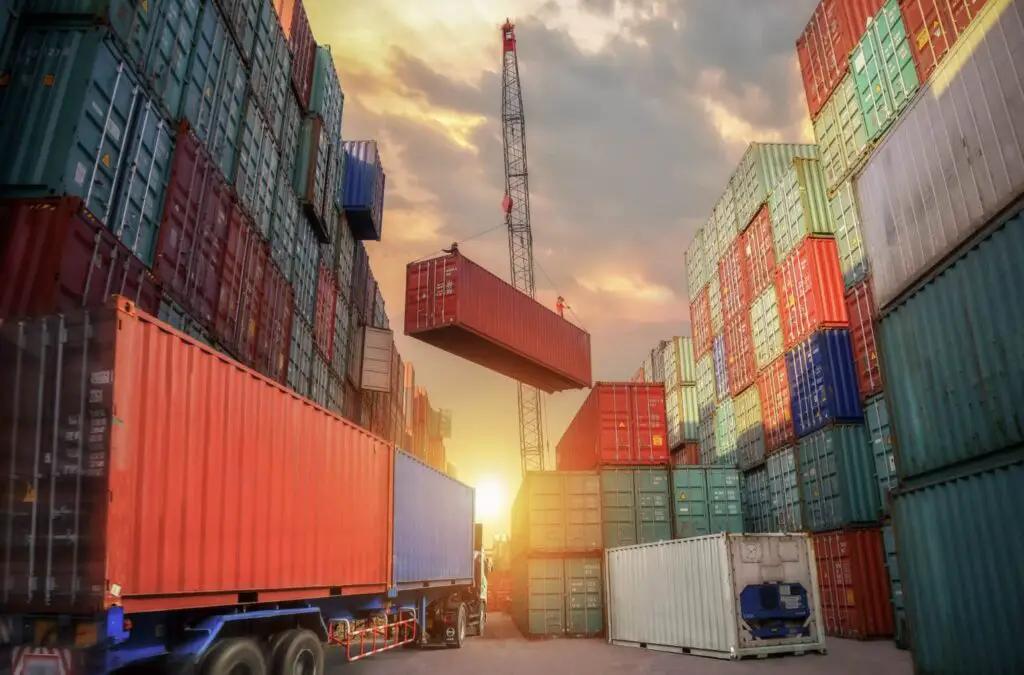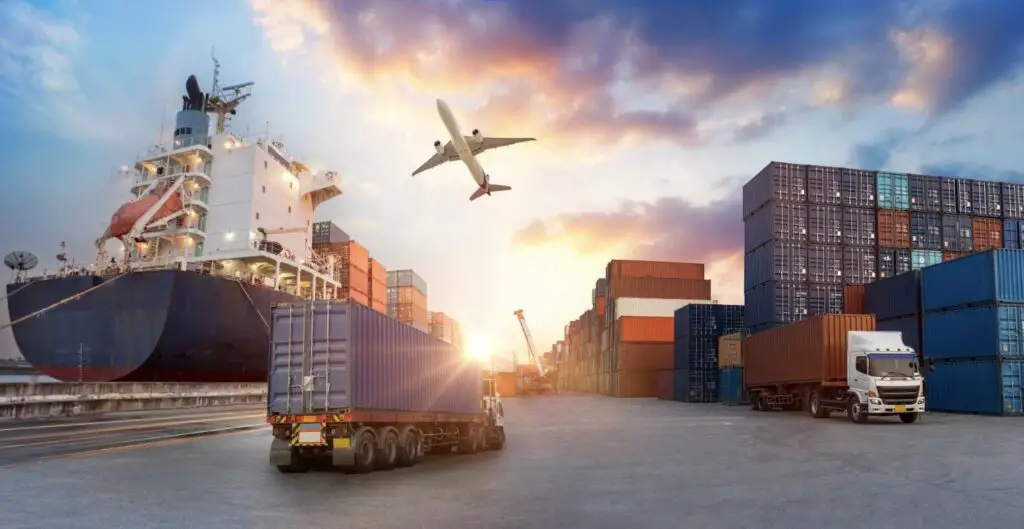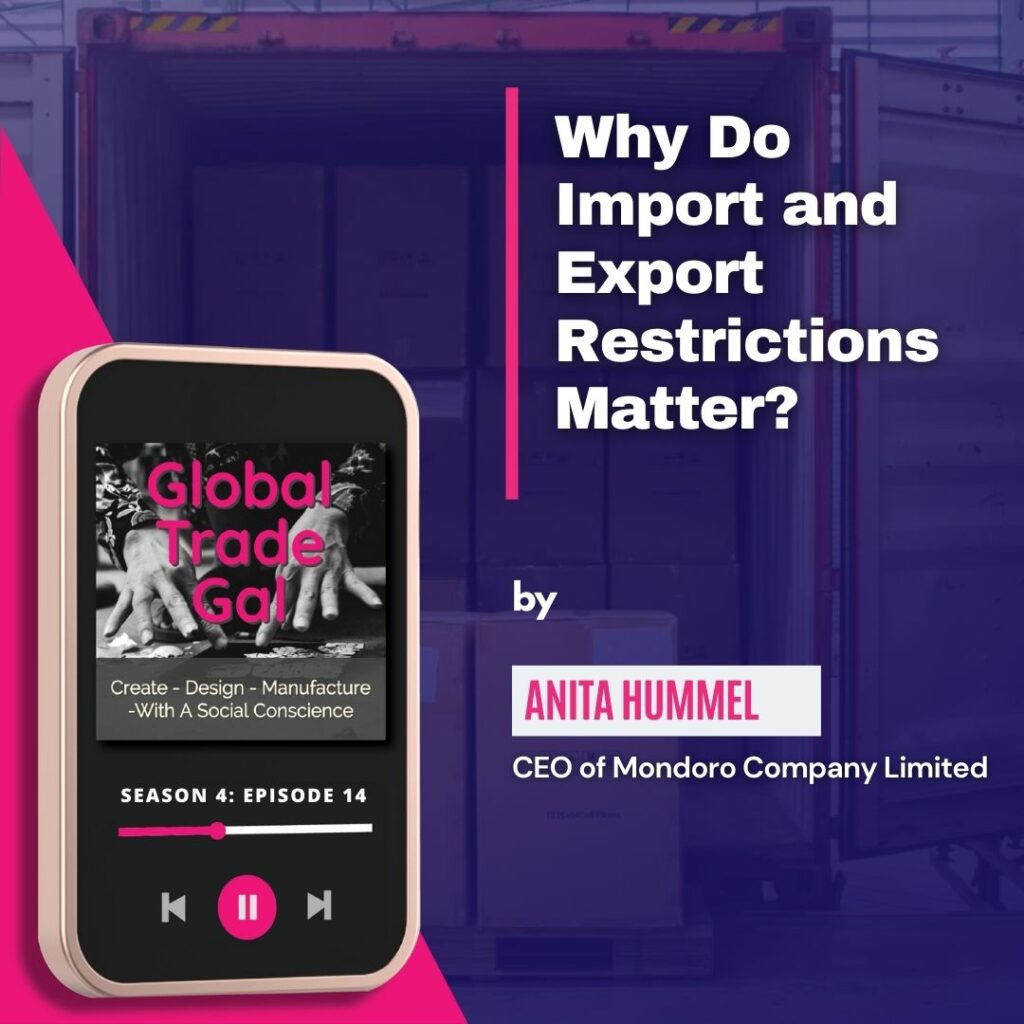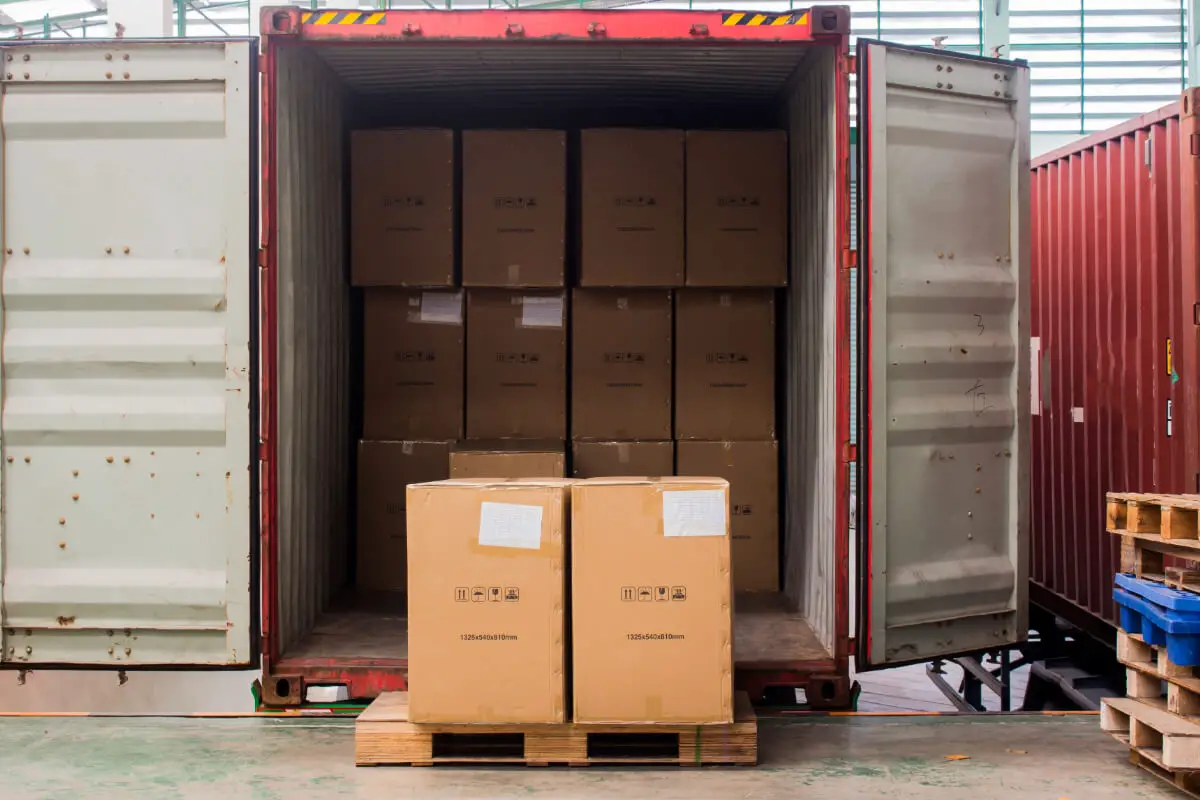Have you ever wondered why countries have so many rules about what goods can come in and out? It’s not all about economics or health. Around the globe, governments carefully regulate trade to keep their people safe, protect the environment, and ensure fair play on the world stage.
This article explores the reasons behind these import and export restrictions and how they shape our global marketplace.
Table of Contents
- Reasons for Restrictions
- Types of Restrictions
- Impact on International Trade
- Navigating Compliance
- Related Content
Reasons for Restrictions
Ever wonder why a country limits what goods come in and out? It’s not just about what’s on the shopping list. Governments worldwide take careful steps to regulate imports and exports, aiming to safeguard their economy, protect public health, and secure strategic interests.
Let’s explore the reasons behind these restrictions and how they affect the global marketplace.

Protecting the Home Economy
One of the main reasons governments impose trade barriers is to shield domestic industries from foreign competition. When a country is flooded with cheaper or superior imports, local businesses might struggle or close down, leading to job losses and economic downturns.
By setting tariffs (a kind of tax) on certain goods or limiting the quantity that can come in, governments help ensure homegrown companies have a fighting chance to thrive. This strategy can be crucial for developing industries or sectors vital for the nation’s economic future.
Safeguarding Public Health and Safety
Safety comes first regarding what we eat, wear, and use daily. Governments enforce restrictions on imports to protect citizens from harmful substances and diseases. For example, stringent checks are in place for food and medication to prevent contamination and health crises.
Similarly, restrictions on imported used vehicles or electronics help ensure that only safe, environmentally friendly products reach consumers. These measures are about keeping dangerous items at bay and ensuring public confidence in the marketplace.
Preserving the Environment
Our planet’s health is a growing concern, and import-export restrictions play a role in environmental protection. Specific regulations aim to prevent the trafficking of endangered species and the spread of invasive plants and animals, which can wreak havoc on ecosystems.
Governments can also combat pollution and conserve biodiversity by controlling the trade in hazardous waste and promoting the use of sustainable resources. These actions reflect a commitment to sustainable development and recognition that healthy economies rely on a healthy environment.
Supporting Strategic Interests
Sometimes, the reasons for trade barriers go beyond economics and health. National security concerns can prompt a country to limit or monitor the export of sensitive technologies and materials that could be used in weapons.
Governments strive to prevent dangerous technologies from falling into the wrong hands by regulating exports while maintaining their strategic advantages. Additionally, import restrictions can be used as a diplomatic tool, influencing other countries’ policies or responding to international disputes.
Encouraging Fair Trade Practices
Fair play in international trade is not always a given. Governments may impose restrictions to combat unfair practices like dumping, where a country floods the market with cheap goods, undercutting local producers.
Anti-dumping duties level the playing field and signal a commitment to fair competition. Similarly, nations facing unjust barriers to their exports might respond in kind, using trade restrictions as leverage to negotiate better terms. These measures underscore the importance of reciprocity and fairness in global commerce.
The complex web of import and export restrictions reflects a balancing act of protecting national interests while fostering global trade. From economic security to public health, environmental sustainability, and beyond, these policies are vital tools in a government’s arsenal. Understanding the rationale behind trade regulations can help us appreciate the challenges and opportunities in the international marketplace as the world becomes more interconnected.

Types of Restrictions
Understanding the Different Types of Restrictions under the Customs Duties Act
Navigating the Customs Duty Act can feel like a labyrinth, especially regarding the import and export restrictions. These restrictions are crucial for regulating trade and ensuring that the movement of goods aligns with a country’s regulations and policies. Let’s dive deeper to understand the different types of restrictions and how they influence what comes in and goes out of a country.
Anti-Dumping and Countervailing Measures
The Customs Duty Act includes provisions for anti-dumping and countervailing measures to protect local industries from unfair international competition. Dumping happens when a country exports goods at a price lower than the price in its domestic market.
This can hurt local industries in the importing country. To counteract this, anti-dumping duties may be imposed, making the dumped goods more expensive and less attractive in the market.
Similarly, countervailing measures aim to prevent the adverse effects of subsidies provided to producers in exporting countries. If a country subsidizes its industries, making their goods cheaper on the international market, the importing country might impose countervailing duties. These duties level the playing field for domestic producers competing with subsidized foreign goods.
Intellectual Property Rights (IPR) Protection
The Customs Duty Act also plays a vital role in protecting intellectual property rights. This includes preventing the import and export of counterfeit and pirated goods. By enforcing IPR protections, customs authorities help ensure that only genuine products enter the market. This supports creative industries and ensures consumer safety from potentially harmful counterfeit products.
Restricted and Prohibited Goods
Certain goods are either restricted or downright prohibited under the Customs Duty Act. Restricted goods require specific permissions or licenses to be imported or exported. These can include certain drugs, chemicals, and items of cultural significance. The restriction ensures that these items are used for their intended purposes and do not fall into the wrong hands.
Conversely, prohibited goods cannot be imported or exported under any conditions. These typically include illegal drugs, dangerous chemicals that pose a significant risk to public health or safety, and items that can harm the environment.
Compliance with International Sanctions
The Customs Duty Act ensures that trade practices comply with international sanctions and trade embargoes. These sanctions could be against specific nations, organizations, or individuals. Compliance with these sanctions is crucial for maintaining international peace and security. It guarantees that goods moving across borders do not support or finance illegal activities or conflicts.
Quotas and Licensing
Quotas and licensing requirements are sometimes implemented to manage the volume of goods entering and leaving a country. Quotas limit the quantity of a particular good that can be imported or exported within a specific timeframe. On the other hand, licensing requires traders to obtain permission before dealing with specific goods. These measures help regulate the market, protect local industries, and ensure that the supply and demand for goods do not negatively impact the economy.
Each restriction under the Customs Duty Act plays a significant role in shaping international trade dynamics. By understanding these restrictions, individuals and businesses can better navigate the complexities of importing and exporting goods. More importantly, these provisions help balance open trade and protect national interests, public safety, and economic well-being.

Impact on International Trade
Trade restrictions, ranging from tariffs and quotas to sanctions and licensing requirements, affect international trade and the global economy. While they aim to protect domestic industries, safeguard public health, and ensure fair trade practices, they can also introduce complexities and challenges for global economic integration and market stability.
Economic Implications for Exporting Countries
Trade barriers can significantly dampen economic prospects for nations heavily reliant on exports by limiting access to lucrative markets. When high tariffs are imposed, the cost of exporting goods increases, making products less competitive globally.
This can decrease sales and profits for export-driven businesses, potentially resulting in job losses and a slowdown in economic growth. Furthermore, countries facing retaliatory trade measures may find it challenging to maintain their presence in traditional markets, leading to a search for new trading partners and adjustments in production strategies.
Effects on Consumer Choice and Pricing
From consumers’ perspective, restrictive trade policies can lead to a narrower range of products available on the market. For instance, quotas and licensing requirements might limit the quantity of certain goods entering a country, restricting consumer choice and pushing prices upward.
Higher tariffs translate directly into higher prices for imported goods, affecting consumers’ affordability. In the long run, reduced competition due to trade barriers can encourage monopolistic practices, further inflating prices and impacting the quality of products available to consumers.
Influence on Global Supply Chains
Modern economies are intricately linked through complex global supply chains. Trade restrictions can disrupt these networks, leading to delays, increased costs, and reduced efficiency.
For industries relying on components sourced from multiple countries, tariffs, and other trade barriers can complicate procurement processes, leading to production bottlenecks. For example, the automotive and electronics industries, which source parts worldwide, can face significant operational challenges, impacting overall productivity and competitiveness.
Promoting Domestic Industries at a Cost
While trade restrictions are often justified by the need to protect nascent or struggling domestic industries from international competition, this approach can have unintended consequences. Shielding these sectors from global market forces can reduce the incentive for innovation and efficiency improvements, potentially leading to stagnation.
Moreover, relying too heavily on protectionist measures can make domestic industries vulnerable to shocks when such policies are eventually lifted or when competitors find ways to circumvent trade barriers.
Adapting to a Changing Trade Landscape
Nations, businesses, and consumers must navigate the intricacies of a trade environment shaped by restrictions and policies. For countries, balancing protecting domestic interests and fostering an open, competitive market is crucial for sustainable economic growth.
On the other hand, businesses must adapt by exploring new markets, diversifying production, and enhancing competitiveness. Consumers play a role by influencing demand and potentially advocating for policies that promote fair and open trade.
In conclusion, while trade restrictions serve specific national objectives, their broader implications on international trade and the global economy are multifaceted. Balancing the goals of protecting domestic industries, ensuring public welfare, and participating in a mutually beneficial global trade system is a complex challenge that requires careful consideration and strategic planning.
As the global economy continues to evolve, the impact of trade restrictions will remain a pivotal topic for policymakers, businesses, and consumers alike.

Navigating Compliance
Compliance with import/export restrictions is crucial for businesses seeking a seamless international trade operation. The intricate web of regulations can seem daunting, but businesses can comply with legal requirements and turn them into a competitive advantage with the right strategies. Let’s dive into practical strategies that businesses can utilize.
Firstly, staying updated on regulations is not just important—it’s essential. Trade laws constantly evolve, and what’s permissible today might be restricted tomorrow. This means businesses must invest in a robust compliance program.
Leveraging technology, such as compliance software, can automate the monitoring process and alert you to relevant changes in real-time. Moreover, partnering with local experts or lawyers in your target markets can provide nuanced insights that software might not catch.
Another critical strategy is developing strong relationships with customs authorities and other regulatory bodies. These entities are not just gatekeepers but valuable resources. Regular communication can help clarify ambiguities and ensure your business practices align with current regulations.
Sometimes, they offer programs or workshops to help businesses better understand compliance. Participating in these can demystify complex import/export laws and procedures.
Training your team is also critical. Ensuring that everyone involved in the import/export process, from the logistics team to the sales staff, understands the regulations and the importance of compliance can significantly reduce the risk of inadvertent violations. Regular training sessions, updated with the latest regulatory changes, can keep everyone on the same page.
Another strategy is to diversify your supplier and customer base. Relying on a single market for your imports or exports can be risky, mainly if sudden regulatory changes occur. Spreading your operations across multiple countries can mitigate these risks and allow flexibility—if one market becomes too restrictive, you can shift your focus to another.
Lastly, consider seeking AEO (Authorized Economic Operator) status or equivalent in your country. This certification, recognized by customs authorities, signals that your firm complies with trade regulations and supply chain security standards. It often comes with benefits like fewer inspections and priority treatment, which can streamline your operations and save time.
Transparency and ethics should be your guiding principles when applying these strategies. Attempting to circumvent regulations can lead to severe penalties, including fines, bans, and damage to your reputation. On the other hand, a commitment to compliance avoids these pitfalls and can enhance your brand’s trustworthiness, opening up more business opportunities.
Remember, successfully navigating import/export restrictions is a testament to your business’s resilience and adaptability. With diligent preparation and strategic thinking, you can turn regulatory challenges into stepping stones for growth and expansion.

As we examine the intricate balance of international trade regulations, it becomes clear these measures are more than mere bureaucratic hurdles. Countries employ essential tools to guard their economies, public welfare, and strategic interests.
Balancing these priorities with the need for a robust global trade system poses challenges and offers opportunities for innovation and cooperation. Mastering this balance fortifies a nation’s position on the world stage and ensures its citizens a healthier, more prosperous future.
Listen To Our Podcast About Why Do Import and Export Restrictions Matter?
Below or By clicking here.

Find out more about how Mondoro can help you create, develop, and manufacture excellent home decor and furniture products – don’t hesitate to contact me, Anita. Check out my email by clicking here or become a part of our community and join our newsletter by clicking here.
Mondoro gives out a FREE Lookbook to anyone interested. You can receive a copy of our latest Lookbook by clicking here.
Listen to our Podcast called Global Trade Gal. You can find it on all major podcast platforms. Try out listening to one of our podcasts by clicking here.
Subscribe to our Mondoro Company Limited YouTube Channel filled with great videos and information by clicking here.
Related Content
5 Steps To Import Home Decor And Household Decoration Items
To import home decor household decoration items, you must first understand what you will import. Home decor and household items are a huge and vast category of products. Next, you must fully understand who you will buy the products from through product sourcing.
You can learn more by reading 5 Steps To Import Home Decor And Household Decoration Items by clicking here.
An Insider Guide To Where Home Decor Stores Get Merchandise
Some of the best home decor stores we have been to will use a mix of these different buying methods. In other words, they will buy some great-looking products from wholesalers, have some products they have manufactured or sourced themselves, and then bring in some local craftsmen and sell their products. This gives the stores a unique mix and look.
To learn more, you can read An Insider Guide To Where Home Decor Stores Get Merchandise by clicking here.
Why Home Decor Matters? 10 Reasons Why Home Decor Is Important
Home Decor matters since how our home is decorated can and will affect all aspects of our lives. Our homes show the world who we are and what is important to us. Our home decor can affect our physical and mental well-being. Our homes are also gathering places for our families, friends, and loved ones.
You can discover more by reading Why Home Decor Matters? 10 Reasons Why Home Decor is Important by clicking here.


